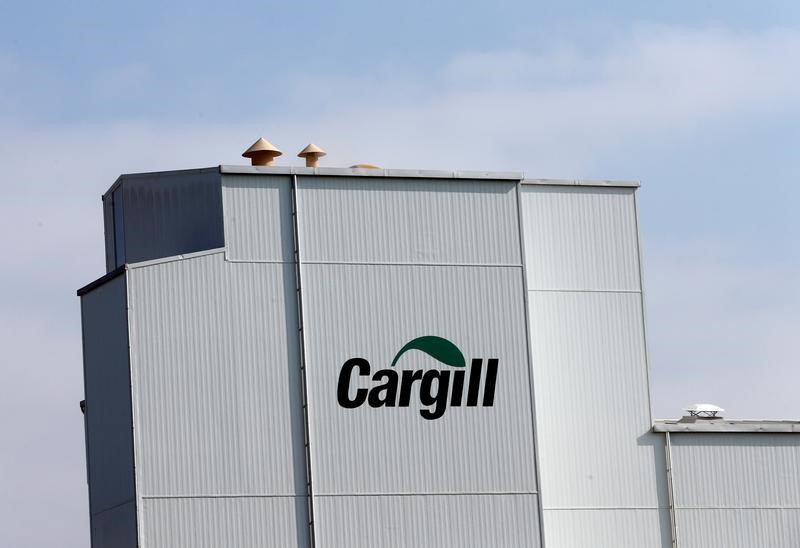By Karl Plume
CHICAGO, July 11 (Reuters) - Global commodities trader Cargill Inc CARG.UL reported a 41% drop in adjusted quarterly profit on Thursday, citing supply disruptions stemming from the U.S.-China trade war and also flooding in the central United States that hit marketing and transportation of grains and livestock.
Cargill, the largest privately held U.S. company, said adjusted operating profit fell to $476 million in the fiscal fourth quarter ended May 31, from $809 million a year earlier, as three of its four business units posted lower year-on-year results. tensions between Washington and Beijing have battered the U.S. agricultural sector as tit-for-tat tariffs have reduced commodities exports from the United States and redrawn global trade flows. Severe spring flooding across the U.S. farm belt added to the struggles.
"It was an off quarter. It wasn't what we wanted but we're quite optimistic about where we're taking the company," David Dines, Cargill's chief financial officer said in an interview.
"When you combine the weather with the trade war, it's just a challenging time for the industry," he said.
Minnesota-based Cargill is the first of the major grain traders to report earnings since U.S.-China trade talks broke down and persistent rains led to the slowest U.S. spring planting season on record.
Cargill rivals Archer Daniels Midland Co ADM.N and Bunge Ltd BG.N report quarterly results at the end of the month. animal nutrition and protein segment posted a lower year-on-year profit for the third time in four quarters as poor weather disrupted U.S. Midwest cattle shipments and reduced demand for beef for outdoor grilling.
Reduced hog feed demand in China, where a deadly hog disease called African swine fever has decimated the industry, further dampened results.
Profit for Cargill's origination and processing business fell from an exceptionally strong fourth quarter last year as flooding across the central United States disrupted grain transportation and exports. U.S. farm product exports faced stiff headwinds as tariffs on U.S. goods imported by China, the world's top soybean buyer and major importer of various other agricultural goods, remain in place.
The company expects to reverse some mark-to-market losses from declining soybean prices later this year as beans are processed and soy products are sold, Dines said.
Lower sweeteners and starches profits weighed on Cargill's food ingredients and applications unit.
Cargill's industrial and financial services segment posted stronger earnings, led by improved profit in metals, risk management and trade finance.
